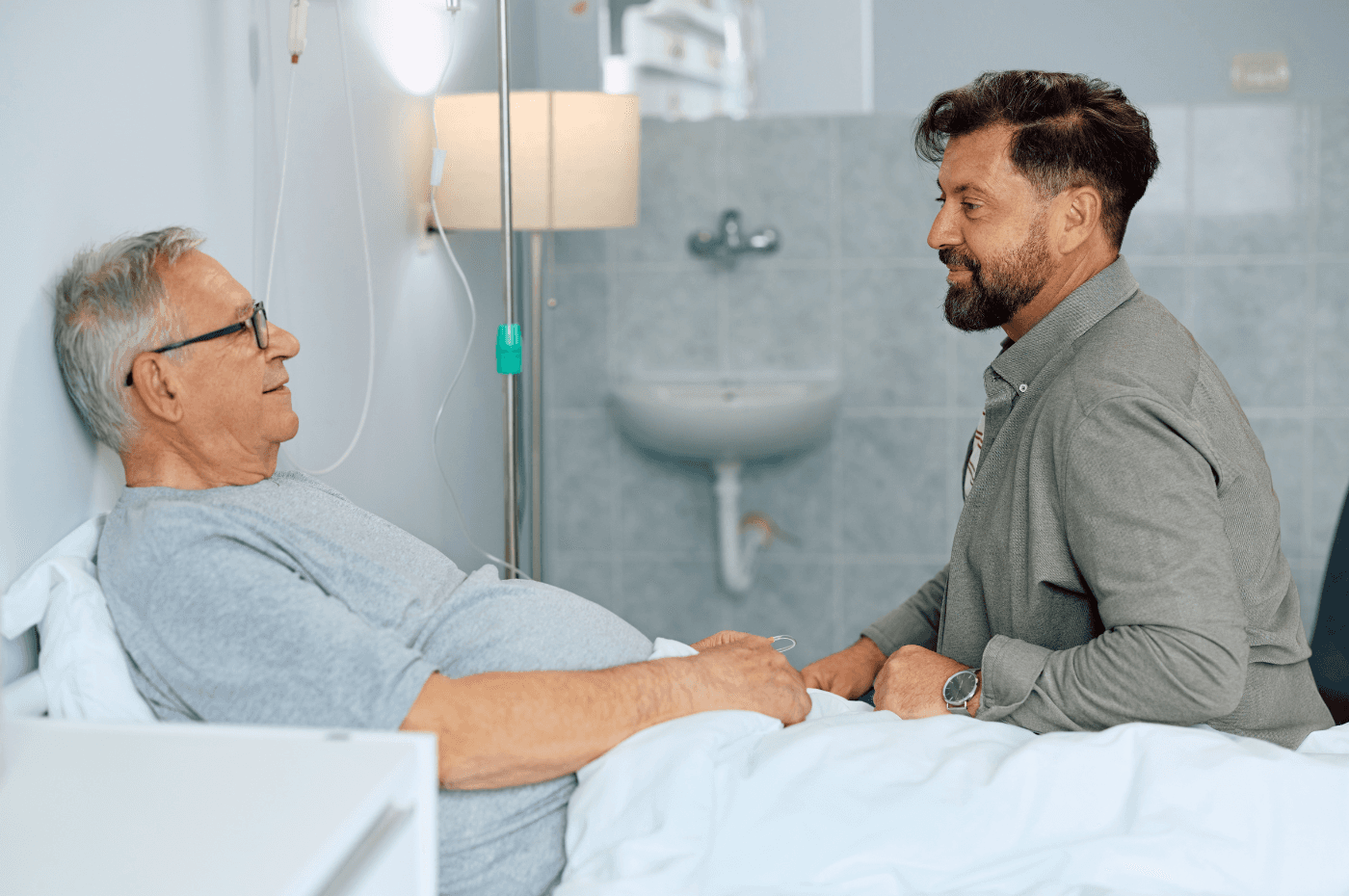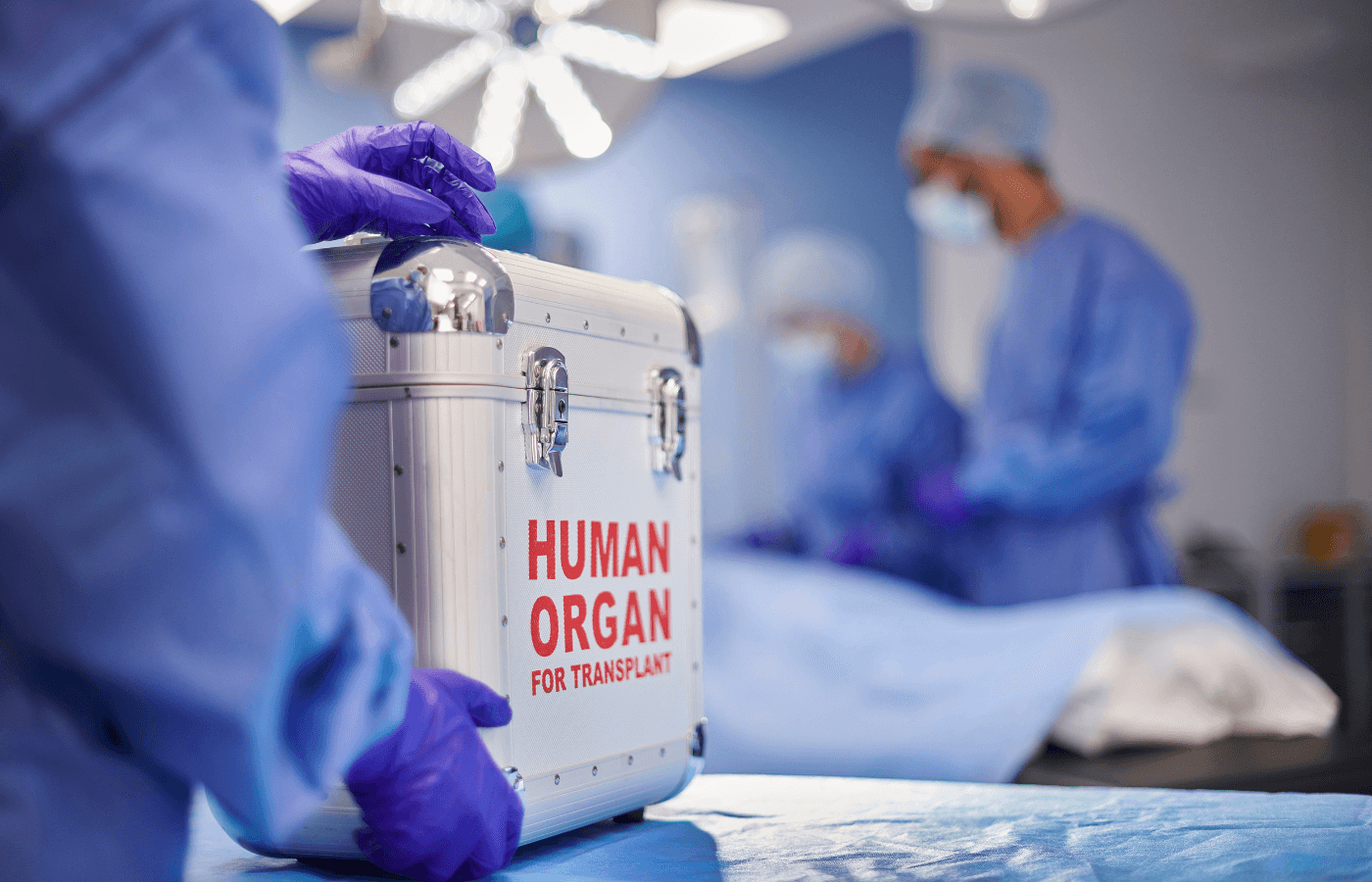Organ donation can be a sensitive subject for a lot of families. After all, nobody likes to think about what might happen if they get into an accident or fall ill. But it’s important to confront that possibility and plan for it.
According to the U.S. Health Resources and Services Administration, there are more than 103,000 men, women, and children waiting for an organ transplant — which is why medical experts say that each donor has the power to save up to eight lives.
You might already have strong feelings about whether you’d like to donate as part of your legacy. And regardless of your decision, it’s critical that you share those feelings with loved ones and your doctors to ensure those wishes are honored.
Unfortunately, kickstarting that conversation isn’t always easy. That’s why we sat down for a Q&A session with Dr. Kevin Huffman, a bariatric physician and doctor of osteopathic medicine in Ohio.
Over the past four decades, Huffman has treated more than 10,000 patients and trained and mentored hundreds of physicians and allied healthcare providers. He’s also the CEO and founder of Ambari Nutrition.
Read on to get his pro tips on how to start “the conversation” about organ donation with family members, the legal steps you should take to guarantee your wishes are honored, and how to communicate your organ donation status to medical practitioners.
Why Discuss Organ Donation Well in Advance?

Answer: Clear communication makes sure your wishes are known and respected, which lightens the load for your loved ones during a difficult time.
Research indicates that families are more inclined to agree to donation requests if they have been discussed in advance, leading to more lives saved.
There are some misconceptions people have about organ donation that may make conversations difficult.
Many worry that signing up as a donor could affect their medical care, but doctors prioritize saving your life first. Some think age or health conditions disqualify them, but many are still eligible to donate tissues or organs.
Initiating the Conversation With Family
Answer: Connect the conversation to a news story or personal experience related to donation. For example, "I heard a story about a child saved by a donor, and it hit me: I want to be one, too."
Validate their feelings and explain your reasoning, focusing on the difference donation can make. Assure them it’s a personal choice and you’ve considered it carefully.
Use statements such as, "This is something that is important to me," or "I want to leave a legacy of helping others." Framing it as an affirmative act can reduce tension.
What Legal Steps Ensure Your Wishes Will be Honored?
Answer: Sign up as a donor in your state’s registry and in your living will or advance directive. This gives your decision legal support.
Putting your donor status in these documents ensures that your wishes are legally documented and accessible to healthcare providers and family members.
Registering as an organ donor makes no difference to your emergency care — doctors only care about saving your life. Organs are only harvested after everything possible has been done to save you.
How Should You Discuss Your Wishes with Doctors?

Answer: Bring it up when you’re talking about routine visits or advance care planning. For example, “I’m registered as an organ donor and want to ensure that’s noted in my records.”
Doctors and hospital staff make it easier by verifying your donor status, talking to your family and working with organ procurement organizations.
Common concerns doctors hear from families are that donations delay funeral arrangements or cause disfigurement, but donations are done respectfully and won’t hold up ceremonies.
What Cultural or Emotional Impacts Should Be Considered?
Answer: Some cultures/religions have specific views, but many now embrace donation as a generous act. It can be helpful to find these beliefs yourself and approach them with respect.
Fear of death or an inability to talk about dying can complicate things. To circumvent these barriers, opponents have framed donation as a life-saving gift.
Encourage donation as a way to give purpose to loss — and save lives. Imagine inspiring donors by sharing stories of recipients whose lives donors transformed.
What Steps Should You Take After Having the Conversation?
Answer: Reassess your decision during momentous life changes, like marriage or illness, or every couple of years to ensure it remains consistent with your values.
Groups such as Donate Life America have guides, videos, and FAQs. Health providers may also provide information and support to help families navigate this discussion.
If you change your mind about organ donation later, check your donor registry status and tell your family and your healthcare provider. It’s a good idea to make sure all records denote your current wishes.
–––––––––––––––––––––––––––––––––––––
Using Trustworthy to Communicate Your Wishes

It takes good organization to ensure your organ donation wishes are up to date and that loved ones are kept in the loop. That’s where Trustworthy's Family Operating System® can make life a whole lot easier.
Trustworthy’s secure platform enables users to upload and organize all of their essential family documents — financial records, mortgage documents, insurance policies, tax returns, family IDs, and much more.
Trustworthy’s Autopilot tool streamlines the process by automatically offering up a file name suggestion, folder location, and summary for each upload — which means all your documents are organized and 100% searchable at all times.
From there, you can collaborate with trusted users by sharing your organ donation wishes with family members, your attorney, or doctors. Trustworthy enables you to grant granular access so that you can choose who has secure access to each file, and you can set a time limit or revoke that access at any time.
You can even set up reminders that prompt you to regularly review those documents to ensure they’re always up to date.
Ready to start organizing the future? Join Trustworthy today, for free, to make sure your medical wishes are protected.
We’d love to hear from you! Feel free to email us with any questions, comments, or suggestions for future article topics.
Trustworthy is an online service providing legal forms and information. We are not a law firm and do not provide legal advice.













